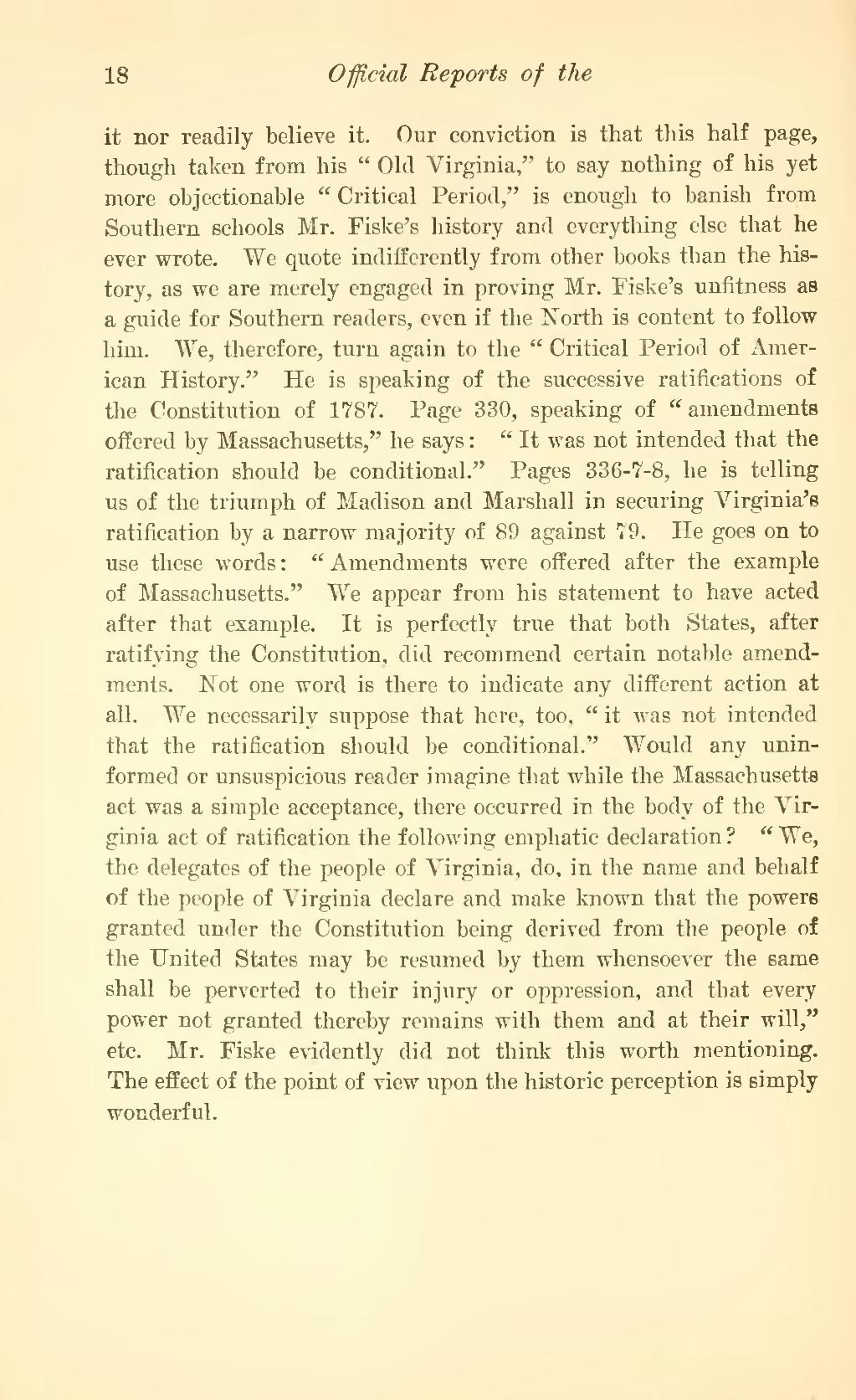it nor readily believe it. Our conviction is that this half page, though taken from his "Old Virginia," to say nothing of his yet more objectionable "Critical Period," is enough to banish from Southern schools Mr. Fiske's history and everything else that he ever wrote. We quote indifferently from other books than the history, as we are merely engaged in proving Mr. Fiske's unfitness as a guide for Southern readers, even if the North is content to follow him. We, therefore, turn again to the "Critical Period of American History." He is speaking of the successive ratifications of the Constitution of 1787. Page 330, speaking of "amendments offered by Massachusetts," he says: "It was not intended that the ratification should be conditional." Pages 336-7-8, he is telling us of the triumph of Madison and Marshall in securing Virginia's ratification by a narrow majority of 89 against 79. He goes on to use these words: "Amendments were offered after the example of Massachusetts." We appear from his statement to have acted after that example. It is perfectly true that both States, after ratifying the Constitution, did recommend certain notable amendments. Not one word is there to indicate any different action at all. We necessarily suppose that here, too, "it was not intended that the ratification should be conditional." Would any uninformed or unsuspicious reader imagine that while the Massachusetts act was a simple acceptance, there occurred in the body of the Virginia act of ratification the following emphatic declaration? "We, the delegates of the people of Virginia, do, in the name and behalf of the people of Virginia declare and make known that the powers granted under the Constitution being derived from the people of the United States may be resumed by them whensoever the same shall be perverted to their injury or oppression, and that every power not granted thereby remains with them and at their will," etc. Mr. Fiske evidently did not think this worth mentioning. The effect of the point of view upon the historic perception is simply wonderful.
